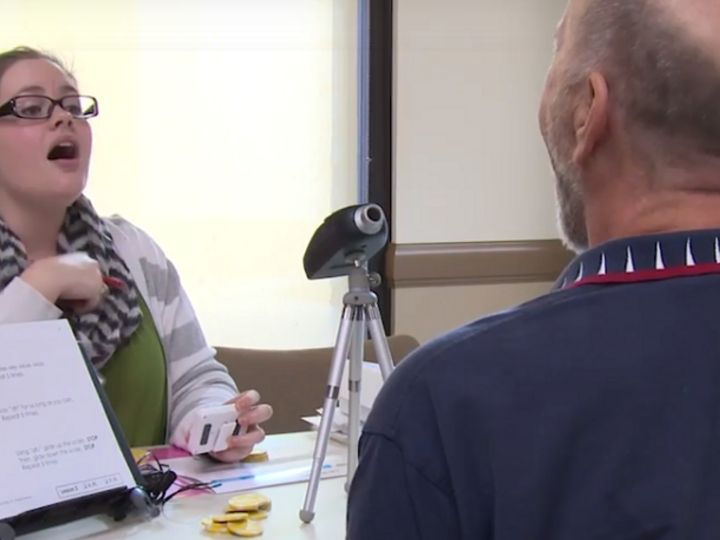
The University of Houston is now helping people who live with the debilitating impact of Parkinson's disease on their voice and ability to swallow. The University Speech-Language-Hearing Clinic (USLHC) has established a Parkinson's voice service with a grant from the Richardson, Texas Parkinson Voice Project's 2019 SPEAK OUT!® & LOUD Crowd® Grant Program.
"Up to 90% of people with Parkinson's are at high risk of losing their ability to speak, and aspiration pneumonia caused by swallowing issues accounts for 70% of the mortality rate in this patient population," said Samantha Elandary, founder and chief executive officer of the Parkinson Voice Project.
The program emphasizes speaking with intent and converting speech from an automatic function to an intentional act every time a person with Parkinson's speaks. The clinic offers the Parkinson Voice Project's speech therapy program which consists of weekly individual sessions called SPEAK OUT!® and group sessions called LOUD Crowd.®
"The Parkinson Voice Project's program offers people with Parkinson's disease the opportunity to preserve their voice and swallow," said Danielle Devore, a speech pathologist and clinical educator at the USLHC. "Voice is an integral part of a person's sense of self and maintaining a voice allows people with Parkinson's disease to remain connected to family and friends and retain a sense of self."
As a grant recipient the USLHC receives free training for speech-language pathologists and graduate students, as well as speech therapy supplies and will have the opportunity to receive funding to offset the cost of providing group speech therapy.
"Awarding these grants has substantially increased access to quality speech treatment to those living with Parkinson's," said Elandary. The program named 149 national and international grant recipients, an increase of 62% from 2018, its inaugural year.
This grant program honors Daniel R. Boone, Ph.D., a world-renowned speech-language pathologist and voice expert who recognized in the late 1950s that individuals with Parkinson's could improve their communication if they spoke with "intent."






